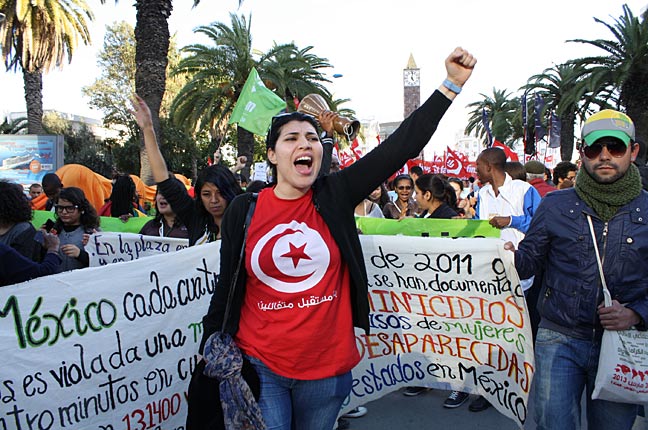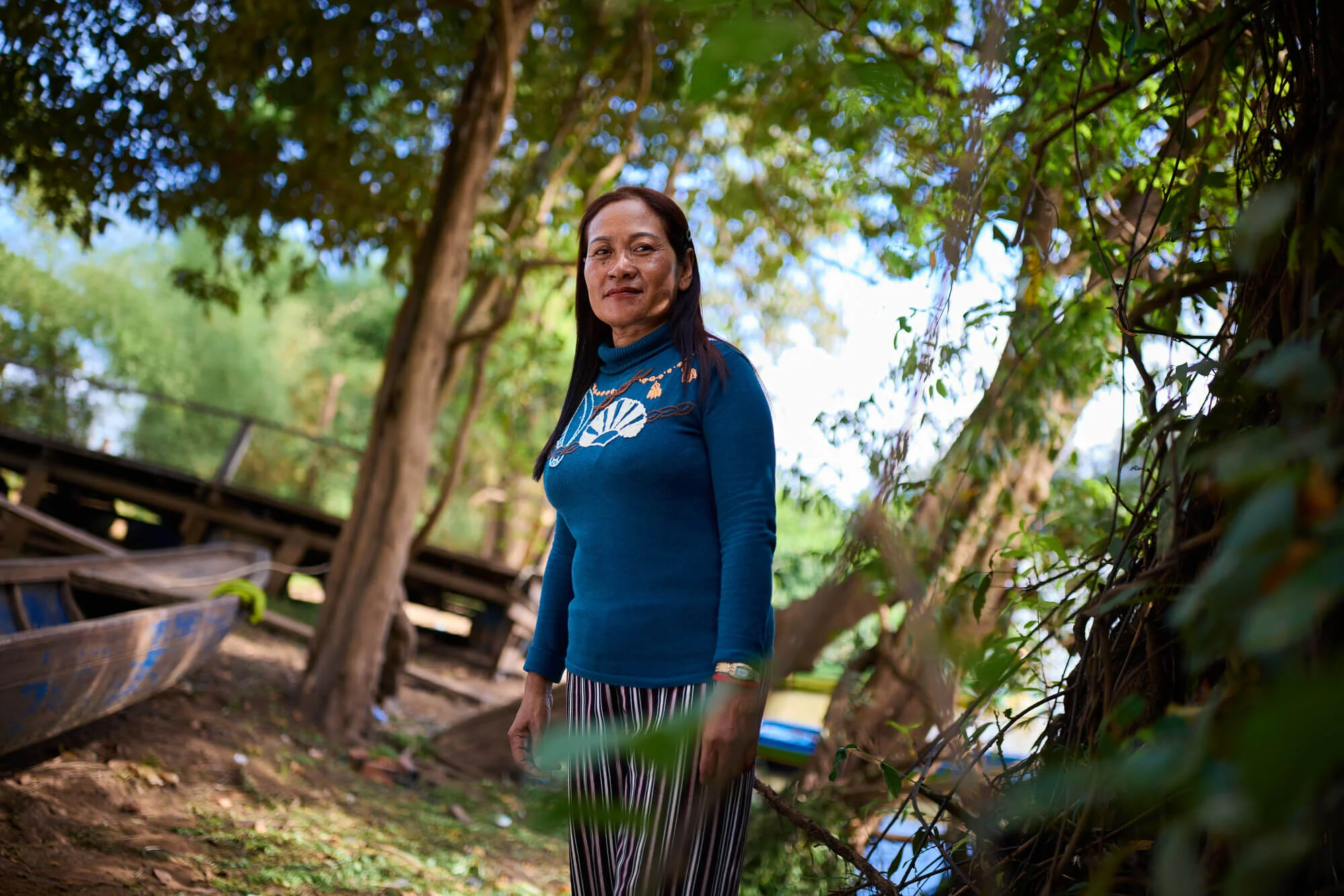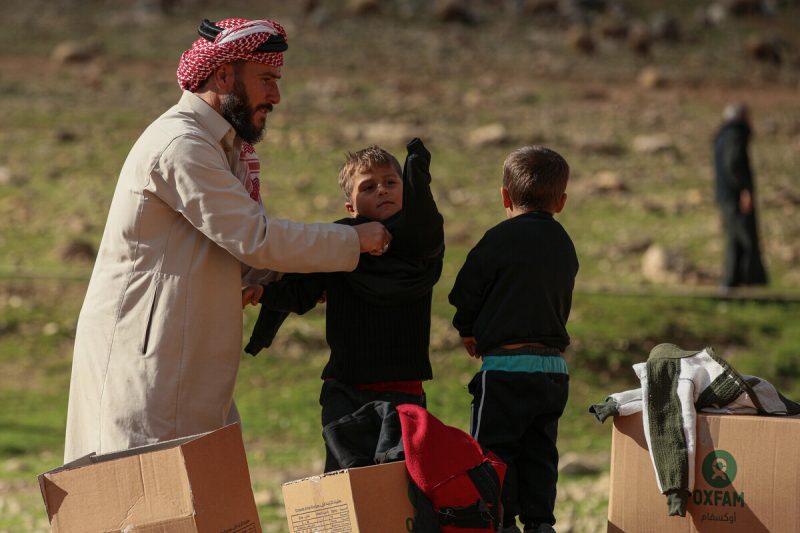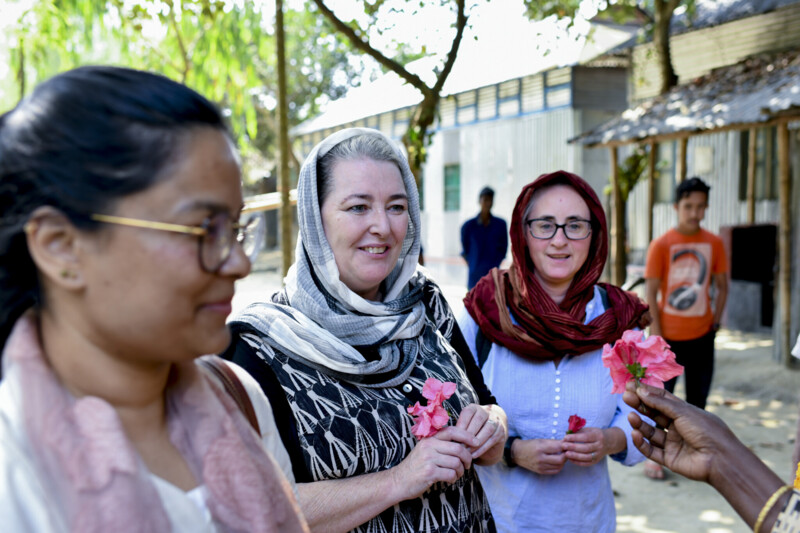By Oxfam Australia’s Lauren Robertson – blogging from Tunisia
We walked down to Mohammad Bouazizi Square in central Tunis on the afternoon of March 26; a place which held significance for the start of the opening march of the 2013 World Social Forum (WSF). The square was renamed after the fruit seller whose suicide sparked protests across the country that ultimately brought down the government of Ben Ali in January 2011.
While this may sound cliché, the atmosphere was nothing short of inspirational as people gathered together in their respective movements and organisations; colourful flags and banners poised to commence the walk through the main avenue of Tunis. Myself and the other Oxfam staff gathered with the 23 Action Partners we’ve brought here from all over the world for the OIYP (Oxfam International Youth Partnerships) Gender Justice Project. To the beat of a drum and behind the OIYP banner we started chanting one of our many mantras that day: “Women’s rights are human rights.”
We marched in solidarity with movements from all over the world, gained people along the way (many of them young Tunisians), and also joined in with the chants of other groups. As Alhassan Adam from Oxfam Great Britain pointed out, OIYP’s presence at the event showed “the side of Oxfam that is willing and capable of working in the movements”.
For the next three days we began each morning with the routine of piling into a mini bus to head to the WSF, appropriately held at a location where many progressive ideas and discussions have happened in relation to human rights and movements in Tunisia – the El Manar University Campus in Tunis. Over 1000 activities were hosted by various organisations and groups, on topics ranging from global debt to women and agriculture, human trafficking, climate change, the future of Palestine and global debt. OIYP action partners held three sessions, each unique but all focused on creating a space to discuss the topic of gender equality. I noticed a lot of young Tunisians attending our sessions, some who came to all three, which for me highlighted the passion amongst many young people in Tunisia to be advocates for these issues.
Comments from people who attended our sessions at the WSF have included firstly admiration for our OIYP Action Partners – in reference to the inclusive, interactive and creative way in which they facilitated the sessions – but also great appreciation for the topics that OIYP brought to the WSF. In a culture that doesn’t openly acknowledge the existence of GLBT issues (gay, lesbian, bi-sexual and transgender), to hold a session titled ‘The Economy of Sex’ that was focused on discussing this very issue and the discrimination surrounding it couldn’t be described as anything less than courageous in this context.
One of the things I appreciated the most was the diversity in race, religion, gender and age of the participants who attended each of our sessions, and also the open-mindedness and respect each individual brought with them. For me, this is what makes the World Social Forum so special – it isn’t a place that only attracts a certain kind of person, one with similar beliefs and backgrounds to everybody else, it’s a space where people from all over the world come together, bringing their own and sometimes quite opposing cultural, religious and generational beliefs, to learn from each other and discuss the issues that our world is facing today in the spirit that the WSF is based on – solidarity, diversity and respect.
As we wrap up the OIYP Gender Justice Project, the significance of this experience and the impact that it’s had on everyone can hardly be put into words. Yet as we reflect, each person knows that they will take all of the lessons learned and motivation gained from this experience back to their own communities to continue to fight for gender equality, because, as one action partner beautifully put it, we know that “this is not as good as it could be”.
To learn more about OIYP’s Gender Justice Project, read my previous blog or head to the OIYP website.



